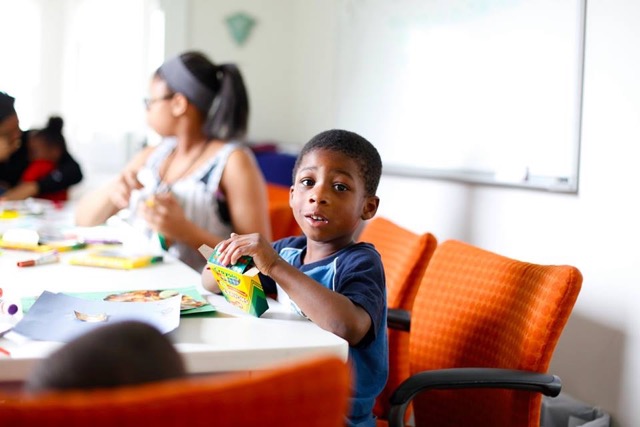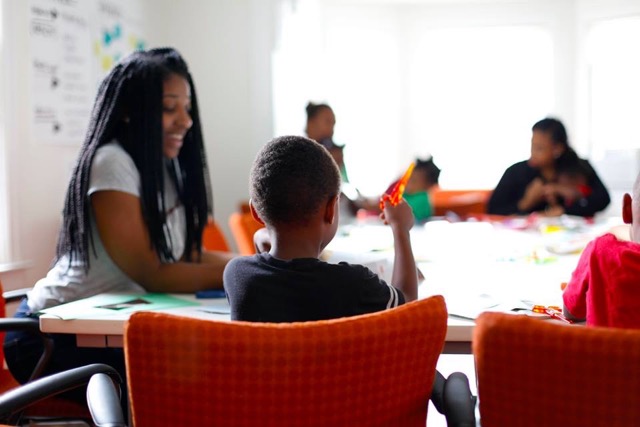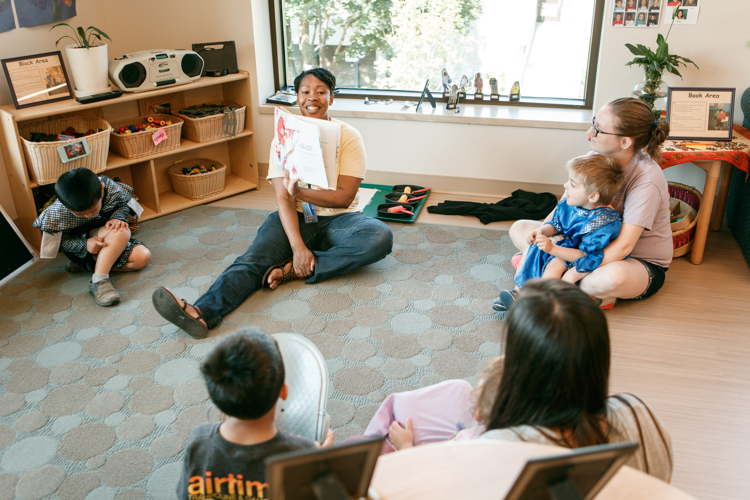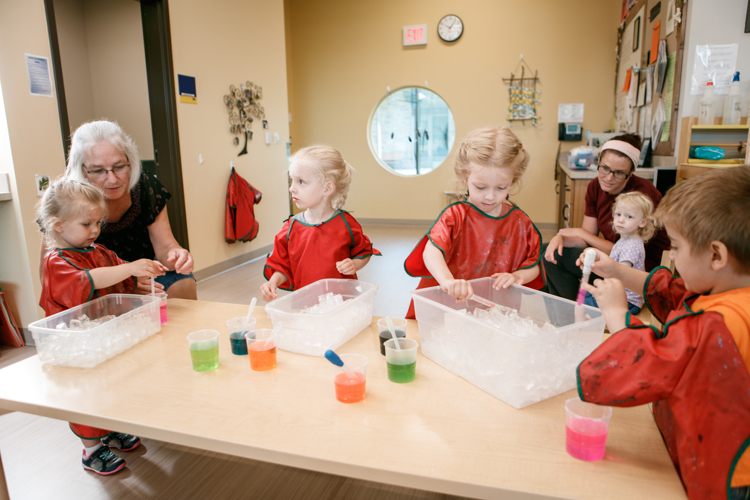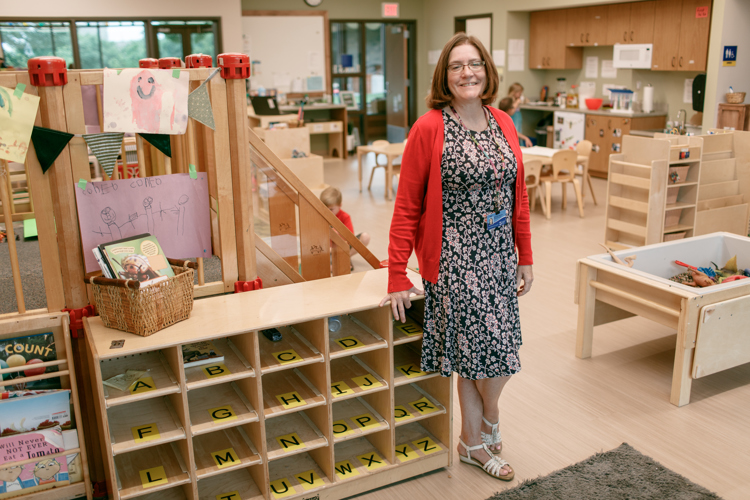These 3 new Michigan childcare centers offer the most advanced facilities for children — and adults
Childcare centers are becoming much more than just a place to drop off kids. We look at three Michigan facilities that widen their reach to provide quality experiences for families, caregivers, and entire communities.
The latest research suggests that high-quality early childhood education has positive long-term effects that last well into adulthood. Unfortunately, demand for early education outstrips access to these facilities. And often the quality is poor.
But some of the state’s newest facilities are demonstrating how to build great early childhood centers, and how to make them accessible to the entire community they service. Not only do they utilize the latest education models for infants, but they also offer programming for parents, medical and dental clinics, and even career and job training. All housed within quality facilities, these three centers look more like community hubs than childcare providers.
Pathways of Promise Early Childhood Learning Center (Detroit)
For more than five years, Central Detroit Christian Community Development Corporation (CDC) has championed programs to empower families. Their Parent Connect groups and Preschool Prep Learning Clubs, held at the Brilliant Detroit Center House, offer two-generation learning experiences that teach children social-emotional skills alongside their peers, while moms and dads gather to learn about child development, kindergarten readiness, and separation anxiety.
This summer, CDC will open the Pathways of Promise Early Childhood Learning Center, an 11,000 square foot center for infants, toddlers, and preschoolers. Housed within CDC’s new community center and administrative headquarters, the facility is licensed for 56 students and will provide one stop care for children of different ages, a boon for busy working parents who often drop infants at one location, toddlers at another, and preschoolers at a third.
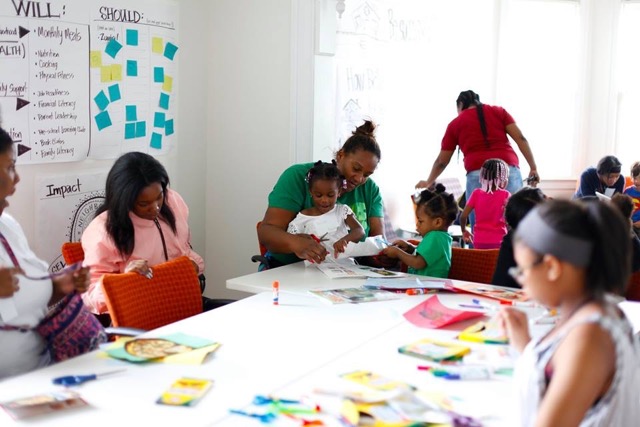
“One central location is key,” says Parenting with a Purpose program director Tanisha Finley. “We are very excited because we need to have a hub of services in our community, and we have to make it more accessible for our families.”
Future plans include onsite dental and medical clinics. “Parents can’t have childcare in one place, their doctor’s office in another place, and DHS somewhere else,” says Finley. “Services must be wrapped around, and be more holistic.”
Innovative funding, including loans, matching grants, and crowdfunding, helped CDC renovate the former Tried Stone Baptist Church in the historic Virginia Park neighborhood. Nonprofit real estate consultant and developer IFF “provided the construction financing which allowed this project to happen,” says CDC executive director Lisa Johanon. “They were very proactive and supportive.”
CDC recognized that facility quality enhances programming quality, and worked to create an environment aligned with best practices for early childhood spaces.
“A safe and nurturing learning environment is key to a child’s early learning. It’s like fruits and veggies in their diet—it’s essential,” says Finley. “We look forward to seeing younger children feel safe and engage in their learning. It’s quality facilities such as Pathways of Promise that help make a lasting impact on a child and affirm families.”
CDC undertook this project to make quality learning accessible to an underserved population.
“One of our main priorities is affordability,” Finley says. In addition to state child care subsidies, CDC will provide scholarships to students with funds from church groups and private donors. “[Quality care] should be affordable to everybody.”
Early Childhood Education Center (Flint)
When it opens this fall in a modern, purpose-built, ecologically-sound facility, the Flint early childhood education center will offer full-day, full-year programs to 220 infants, toddlers, and preschoolers affected by the Flint water crisis.
Currently under construction on the campus of the Durant-Tuuri-Mott elementary school and funded by new market tax credits and a $9 million grant from The Charles Stewart Mott Foundation to the Foundation for Flint, the 18 classroom, 37,000 square foot facility is a collaboration between Mott, the Community Foundation of Greater Flint, Flint Community Schools, the Genesee Intermediate School District, and the University of Michigan Flint.
The center will have a low student-to-staff ratio, a family engagement advocate to connect families to medical, dental, and wellbeing services, and a comprehensive two-generational educational approach.
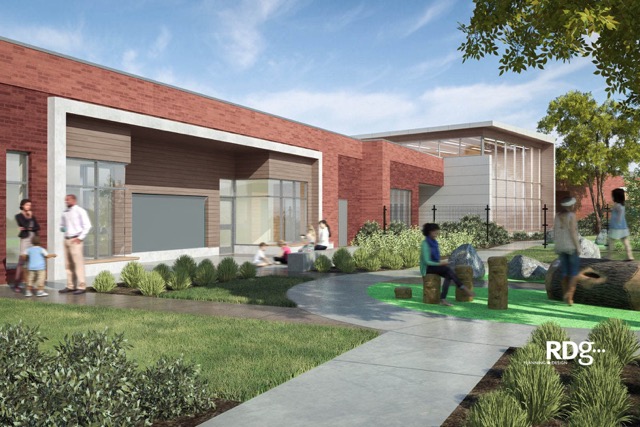
“We’ll have literacy programs for adults, and also teach parents how to work in the classrooms to earn their [Child Development Associate] credential so they can work at the school,” says Tricia Hill, executive director of countywide programs, Genessee Intermediate School District. Parents can also earn a commercial driver license to drive a bus.
Engagement between preschool teachers and Flint Community Schools kindergarten teachers will focus on desired outcomes for school readiness. Daily, ongoing research through University of Michigan-Flint will provide educators with data critical for success.
The physical and programming frameworks are built on the Educare model, “the gold standard for early childhood education,” says Hill. Publicly accessible areas will allow for adult education, community meetings, multi-generational literacy, and STEM learning for enrolled preschoolers and children in the wider community.
As a resource hub, every center and home-based child care provider in Flint will have access to professional development at the facility.
“We are trying to lift all boats and raise quality for all child care centers around town,” says Isaiah Oliver, president and CEO of the Community Foundation of Greater Flint. “Our goal is to push best practices and access to best practices for everyone.”
Designed for complete engagement, the building will have a theater nook, interactive audio, tactile, and visual elements in hallways, outdoor basketball courts, and a one-third mile walking track for community use. Observation rooms, a newer feature of some early childhood centers, will allow family members and support teams to observe classroom activities.
“I’d venture to say it will be one of the nicest early childhood centers in the state when it’s complete,” says Amy Hovey, special projects coordinator with The Mott Foundation.
Stakeholders want their center to be an example the entire state can draw from.
“Flint serves as a pilot for what can be done when you bring partners together, create synergy, and put kids on a positive trajectory,” says Jennifer Liversedge, assistant to the chairman/CEO and program officer at The Mott Foundation. “We hope it’s so much larger than us.”
Phyllis Fratzke Early Childhood Learning Laboratory (Grand Rapids)
In 1974, Phyllis Fratzke, founder of the child development program at Grand Rapids Community College, brought young children and college students together to create learning experiences for both. In January, GRCC opened a brand-new facility, the Phyllis Fratzke Early Childhood Learning Laboratory, based on Fratzke’s education model.
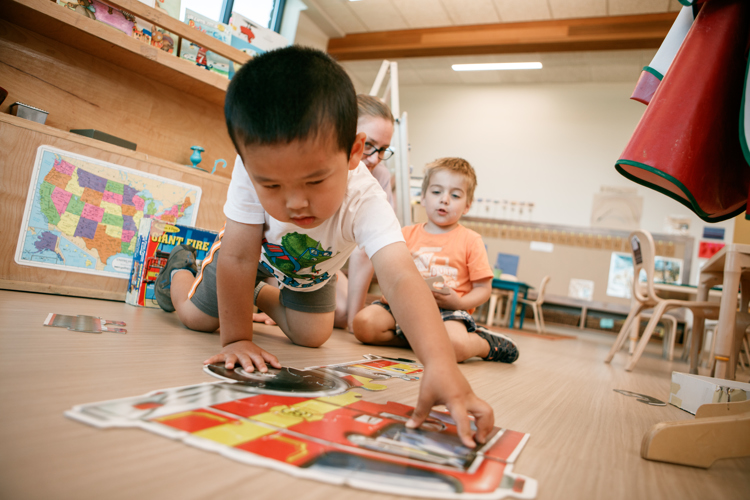
Licensed for 110 infants, toddlers, and preschoolers, the learning lab accommodates about 400 college students each semester who work with the children under the guidance of faculty. In addition to child development, students from culinary arts, exercise science, dental, nursing, and other disciplines engage with children to enrich learning experiences for the children, and for the college students.
The center welcomes community families for engagement events, and playgroups led by an early childhood coach.
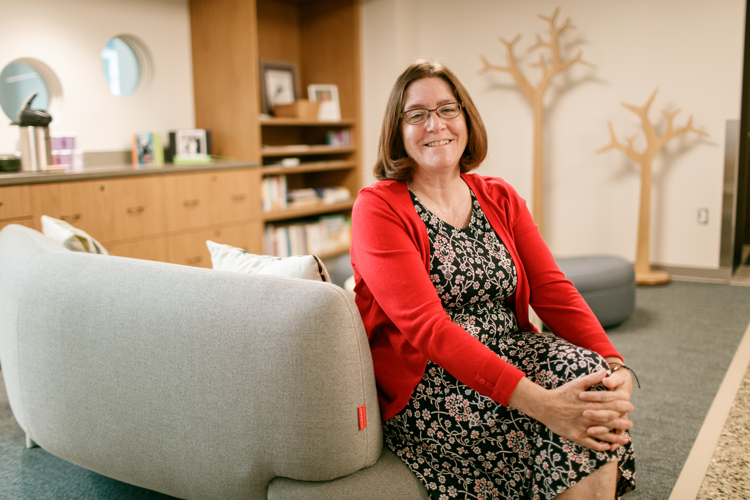
“We’re good listeners—this is what families need,” says director JaneAnn Benson.
The collaborative learning model immerses this early childhood education center in the community and shines a bright light on the importance of early education.
“We are modeling being a good steward of our community, constantly talking about what that means and how we can model that for young children,” says Benson. “It’s a really important part of what we do.”
This article is part the series “Early Education Matters” on the importance of facilities and programming in early childhood education. It is made possible with funding from IFF. Read more articles in the series here.
